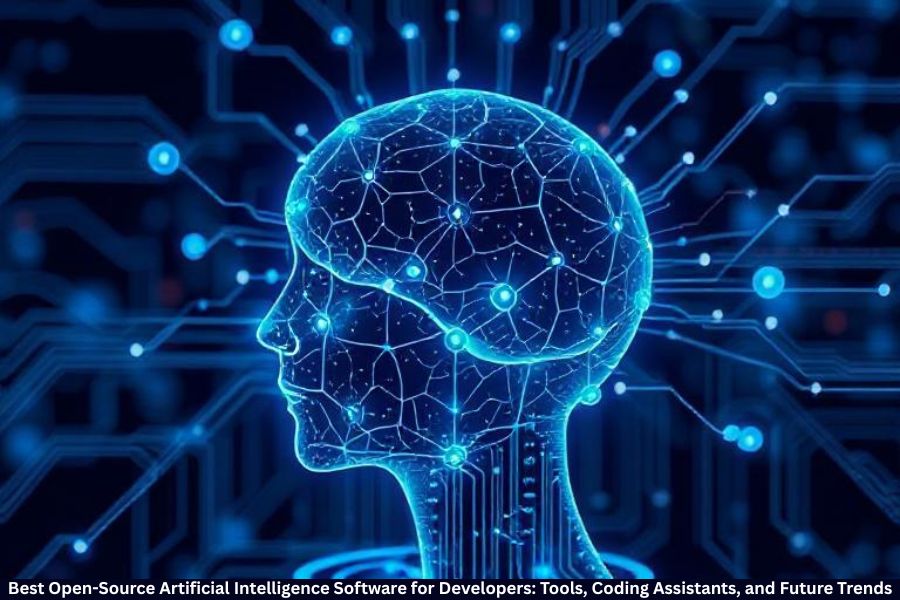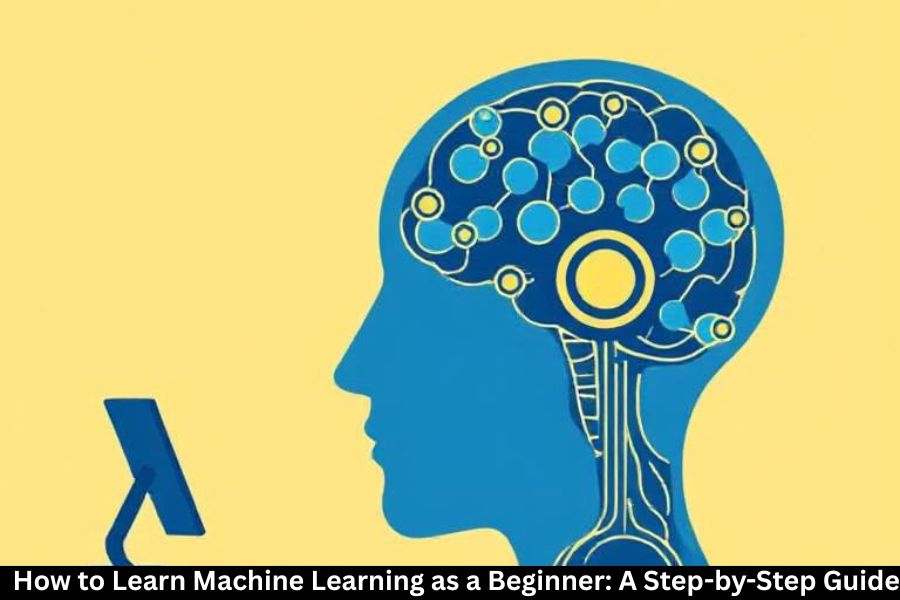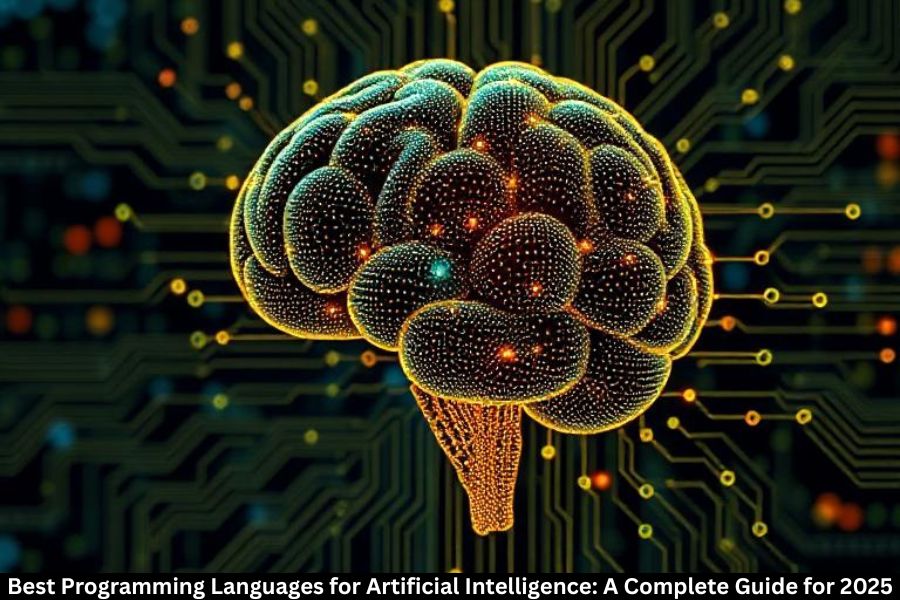Open-source projects have opened the gates for new-age technology. Now AI is no longer in the hands of a few. Developers from all over the world have gained access to advanced AI solutions, which they can tinker with and build upon without the barrier of license fees. The question at hand, however, is which open-source AI projects deserve developers’ focus? Let’s try to find out.
Understanding Open-Source AI
Open-source AI is software with source code that is openly available to anyone. Anyone can use, modify, and even distribute the code. For developers, this represents a significant advantage: the opportunity to create innovative solutions without having to rely on expensive, proprietary software.
Benefits include:
- Complete insight into the AI models’ inner workings
- Opportunities to tailor tools as per project requirements
- Strong, community-led innovation
Why Open-Source AI Matters
- Cost-effectiveness – No need to purchase expensive licenses.
- Collaboration by Community – Contributors from around the world give their inputs.
- Security and Trust – “Open” as in open source means that any security threats are immediately seen and fixed.
Popular Open-Source AI Tools for Developers
TensorFlow
Google’s TensorFlow is probably the most well-known and widely used machine learning and deep learning framework. It’s flexible and scalable, and is used for projects ranging from chatbots to computer vision.
PyTorch
Facebook’s PyTorch has gained massive popularity because of its dynamic computation graph, making experimentation easier. It’s widely used in research and production.
Keras
Keras is beginner-friendly and works as an API for TensorFlow. It simplifies building neural networks without deep technical overhead.
Scikit-learn
Perfect for data science beginners, Scikit-learn is great for statistical modeling, regression, clustering, and classification.
Apache MXNet
Known for efficiency and scalability, MXNet supports multiple programming languages like Python, R, and Scala.
Hugging Face Transformers
If you’re into Natural Language Processing (NLP), Hugging Face is a treasure trove. It provides pre-trained models for sentiment analysis, chatbots, summarization, and more.
Which AI Tool Should Developers Use?
Since tools are designed for specific purposes, determining the best one becomes subjective.
- Use PyTorch if you are into deep learning research.
- Use TensorFlow if you are looking at production and scalability.
- Use Scikit-learn or Keras in machine learning if you are a beginner.
So, essentially, the best tool is the one that best fits your project requirements.
Which Open-Source AI Would Be Most Useful for Coding?
AI-powered coding tools will be the most helpful for you.
- For code autocompletions, Kite is one of the few providers.
- With machine learning, code completion can get even better, like with the TensorFlow-powered TabNine.
- Now for the most advanced one, OpenAI Codex (through APIs) also powers GitHub Copilot, which is capable of suggesting an entire line of code.
Are There AI That Are Open-Source?
There certainly are! Examples are as follows:
- Hugging Face models for NLP
- TensorFlow and PyTorch for ML and DL
- Stable Diffusion for AI-generated images
Open-source AI offers an abundance of possibilities and innovation for developers.
Which Free AI Tools Are Good at Coding?
For AI-powered coding assistance, the following should interest you:
- The trial version of GitHub Copilot offers code suggestion assistance.
- TabNine’s free plan is also quite beneficial for individual developers.
- In addition, open-source communities are creating models geared toward coding assistance.
Can We Use ChatGPT For Coding?
ChatGPT can be used for coding, and many developers rely on it for diverse coding tasks:
- To generate boilerplate code
- To debug code
- To explain complicated functions
- To grasp new coding paradigms
ChatGPT also has a healthcare industry, as it is capable of creating Markov models for statistical representations of patients in ICUs.
There are some limitations, including generating incorrect code and occasionally using outdated methods. Developers should always verify code before deploying it.
Open-Source AI in Machine Learning and Deep Learning
From creating recommendation systems to developing AI-powered chatbots, open-source frameworks such as PyTorch and TensorFlow together dominate ML and DL development. NLP, computer vision, and even reinforcement learning libraries are readily available to developers.
The Role of Communities in Open-Source AI
A powerful aspect of open-source AI is the community. There are discussions, tutorials, and gaming model competitions on GitHub, Kaggle, and Reddit, which also serve as model-sharing platforms. The collaborative nature ensures the rapid evolution of the tools.
Challenges of Using Open-Source AI
Open-source AI with the above powers has a set of challenges as well.
- Proper Documentation Might Be Missing For Some Tools
- Requires A Specific Set of Skills
- Updates May Happen Too Frequently and Be Difficult To Manage
Future of Open-Source AI for Developers
Given the increasing AI democratization, the predicted future for open-source tools is very promising. Expect more advanced, accessible, and user-friendly tools. More models focused on automation, coding assistance, and real-time applications are coming soon.
How to Choose the Appropriate Open-Source AI Tool
To select the correct AI tool,
- Define the goals of your project
- Evaluate the community support and recent updates
- Look into scalability and ease of integration
Summary
Open-source AI is changing software development for the better. Tools such as TensorFlow and PyTorch, ChatGPT, and GitHub Copilot are just the tip of the iceberg. Whether you’re writing code, training models, or developing a new application, you have access to an ever-growing ecosystem of open-source AI tools, eliminating the need to start from scratch.
FAQs
What AI tool would you recommend for developers?
The answer depends on the project in question. PyTorch is suitable for research, TensorFlow for production, and Scikit-learn or Keras for beginners.
Which open-source AI is best for coding?
AI-driven coding assistance such as TabNine, Kite, and OpenAI Codex are excellent tools.
Are there any AI that is open-source?
Certainly! TensorFlow, PyTorch, Hugging Face Transformers, and Stable Diffusion are among the best-known open-source AI tools.
Which coding AI tools are free of charge?
Both GitHub Copilot and TabNine offer a free version that includes code suggestion features.
Can ChatGPT write code?
ChatGPT can write, debug, and explain code. As with any other technology, there is always the risk of erroneous information, so developers should verify the results.


